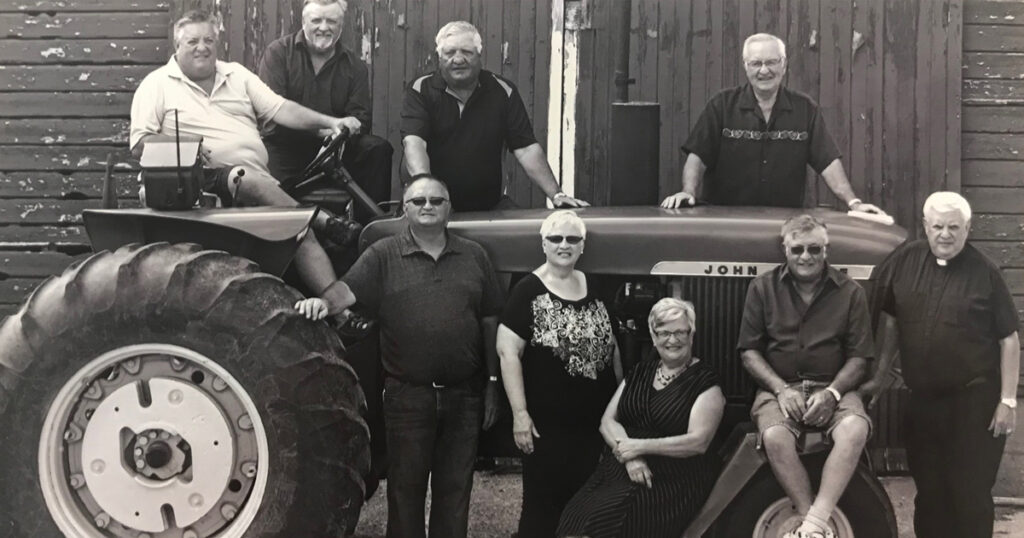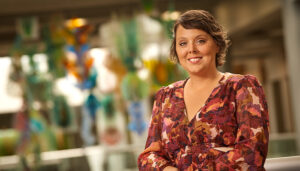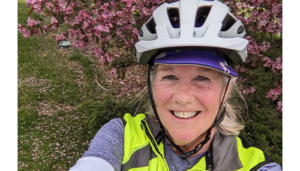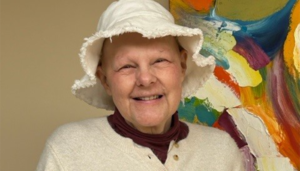Pat Brady was attending a family reunion in the summer of 2018 when she learned several cousins had undergone predictive genetic testing for cancer. With a history of cancer throughout her immediate family, it made her pause and think about her genetic risk.
Brady (68) of Epworth, IA is part of a fairly large family with eight siblings, two children, two grandchildren and 20 nieces and nephews. “I’ve had several family members battle cancer, including my mother who passed away at age 41 from breast cancer,” Brady explains, “I was concerned our genes could be linked to cancer.”
She visited her primary care provider to find out how useful testing may be before proceeding. This is an important step as not everyone is a candidate for genetic testing. Brady was an ideal candidate for the following reasons:
- Her mother passed away from breast cancer, a cancer often linked to hereditary cancer syndromes, at a younger age than normal.
- She has multiple first-degree relatives who have been diagnosed with cancer.
Brady’s primary care provider referred her and her family to the Helen G. Nassif Community Cancer Center Genetics and Risk Assessment Clinic. They worked with Shana Coker, RN, MSN, AOCNS, ARNP and Julie Thompson, ARNP, RN, genetic nurse practitioners specializing in oncology genetics and cancer risk counseling.
“This is biggest group we have tested at the Community Cancer Center,” says Thompson, “Pat has a great family and I enjoyed working with them!”
The Testing Process
There are several components of the testing. It begins with an initial assessment by building out a family tree and looking for any cancer diagnoses and other details such as age. Based on the patient’s family history, they’ll receive education about reducing cancer risk factors and hereditary cancer syndromes. The pros and cons of genetic testing, as well as possible test results, are discussed at length.
The test consists of collecting a simple saliva or blood sample. Results typically take two to four weeks to be completed and are usually given to patients in person. A cancer risk counselor will discuss the results and help patients understand what they mean for them and their families. The goal is to reduce a patient and their loved ones’ risk, and whatever their risk may be, referrals are provided for everything from lifestyle changes to appropriate medical providers.
The Results
Brady’s test results showed a mutation of the CHEK2 gene. It’s a gene every person has, but hers has a mutation. A mutation in certain genes may increase a person’s risk of developing cancer in their lifetime. “Because of her mutation, we knew her siblings have a 50/50 chance of having the same mutation,” says Thompson, “If a sibling is tested positive, then their children also have a 50/50 chance. In all we tested 14 family members.”
With this mutation of the CHEK2 gene comes cancer risks, breast cancer in particular. Four of Brady’s siblings tested positive for the gene mutation, along with her daughter and four nieces.
Next Steps
Since results from the testing became known, Brady and her family have taken action to be proactive through regular doctor visits and screenings. “It was a wonderful experience,” says Brady, “Everyone at the Community Cancer Center is very personable – I would recommend them to anyone.”
Genetics alone do not determine a person’s risk; many other factors influence the development of cancer, including diet, exercise and exposure to environmental factors. Some people with a genetic risk may never develop cancer, while others without a genetic risk do. It’s important to reduce cancer risk in all areas of life.
Shortly after Brady completed testing, she underwent a breast reduction surgery and a tumor was incidentally discovered. She was diagnosed with stage 0 breast cancer and received a double mastectomy in February 2019. She’s fortunate the cancer was found and treated and at an early stage, but she’s even more grateful she was able to help her family uncover their cancer risk and be proactive. Today, she is healthy and enjoying her life as a retiree with her family.
“My advice to others is not to stress over the testing. A weight has been lifted off of my family and I don’t need to worry as much,” says Brady.
Are you at risk? If you are concerned about your personal or family history of cancer, a genetics risk assessment may be helpful. Click here to learn more.







